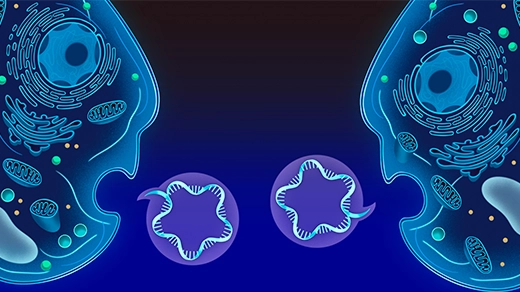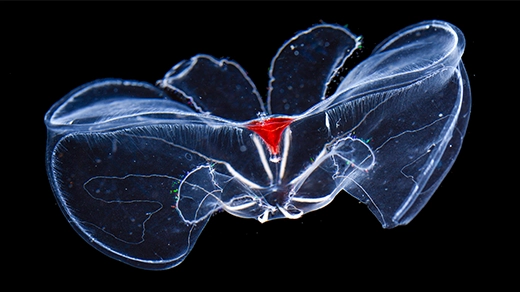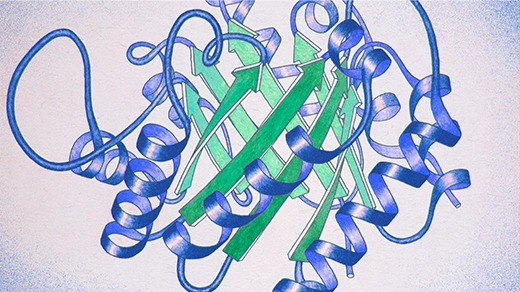What's up in
Molecular biology
Latest Articles
Cells Across the Tree of Life Exchange ‘Text Messages’ Using RNA
Cells across the tree of life can swap short-lived messages encoded by RNA — missives that resemble a quick text rather than a formal memo on letterhead.
The Cellular Secret to Resisting the Pressure of the Deep Sea
Cell membranes from comb jellies reveal a new kind of adaptation to the deep sea: curvy lipids that conform to an ideal shape under pressure.
How Colorful Ribbon Diagrams Became the Face of Proteins
Proteins are often visualized as cascades of curled ribbons and twisted strings, which both reveal and conceal the mess of atoms that make up these impossibly complex molecules.
How AI Revolutionized Protein Science, but Didn’t End It
Three years ago, Google’s AlphaFold pulled off the biggest artificial intelligence breakthrough in science to date, accelerating molecular research and kindling deep questions about why we do science.
New AI Tools Predict How Life’s Building Blocks Assemble
Google DeepMind’s AlphaFold3 and other deep learning algorithms can now predict the shapes of interacting complexes of protein, DNA, RNA and other molecules, better capturing cells’ biological landscapes.
Tiny Tweaks to Neurons Can Rewire Animal Motion
Altering a protein in the neurons that coordinate a rattlesnake’s movement made a slow slither neuron more like a speedy rattle neuron, showing one way evolution can generate new ways of moving.
To Defend the Genome, These Cells Destroy Their Own DNA
Under a microscope, cells in a worm embryo deliberately eliminated one-third of their genome — an uncompromising tactic that may combat harmful genetic parasites.
A Mutation Turned Ants Into Parasites in One Generation
A new genetics study of ant “social parasites” shows how complex sets of features can emerge rapidly and potentially split species.
How a Human Smell Receptor Works Is Finally Revealed
After decades of frustration, researchers have determined how an airborne scent molecule links to a human smell receptor.








